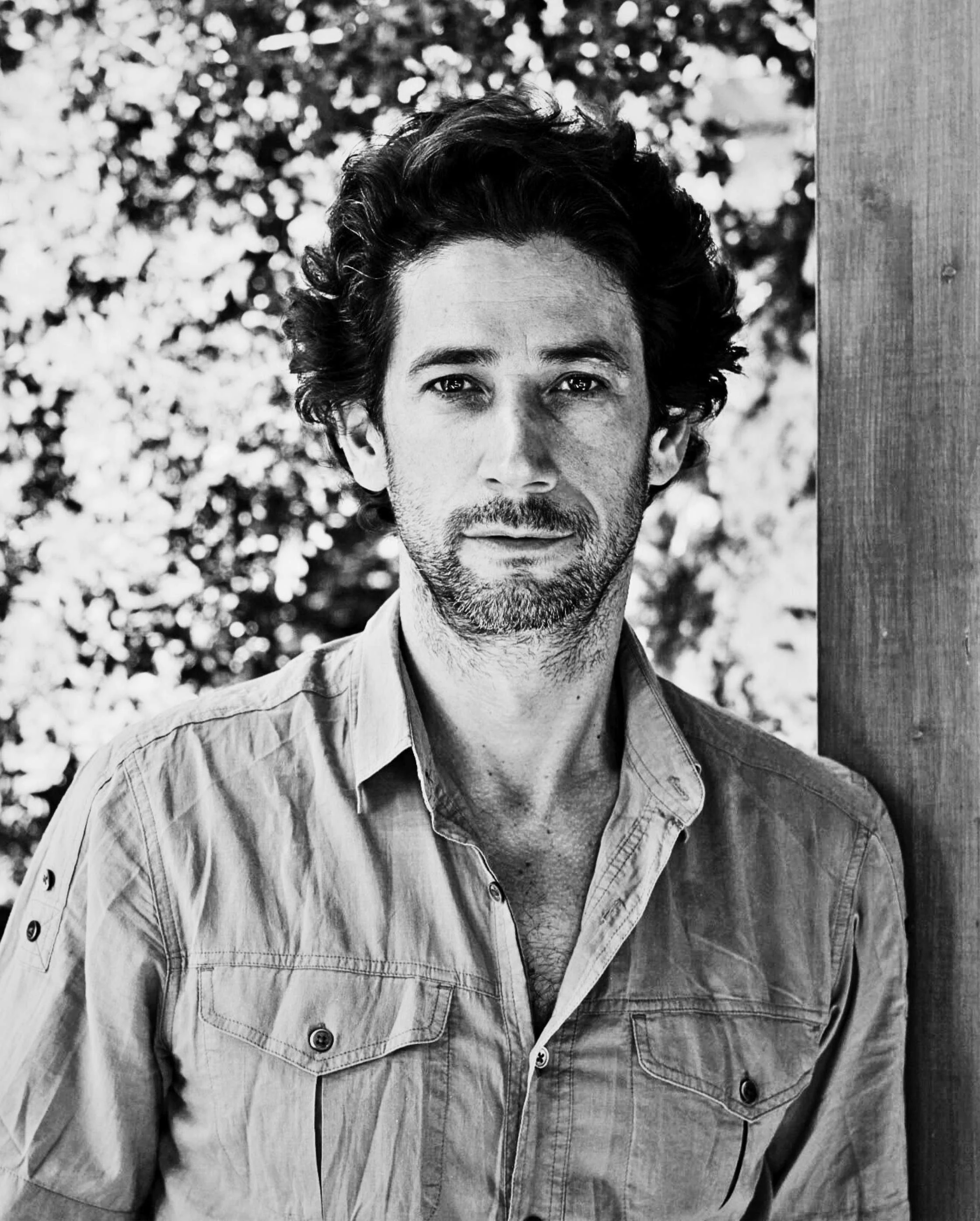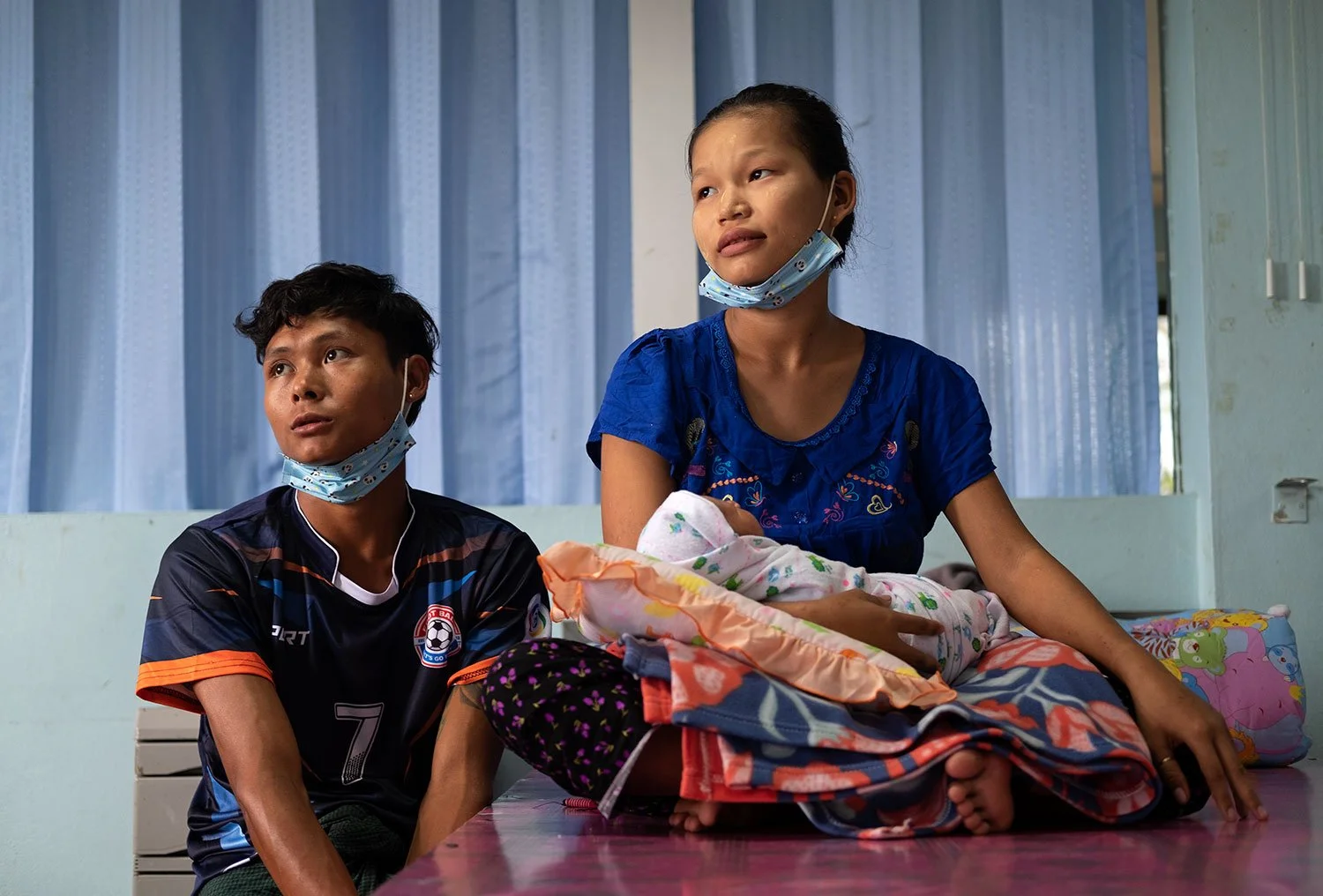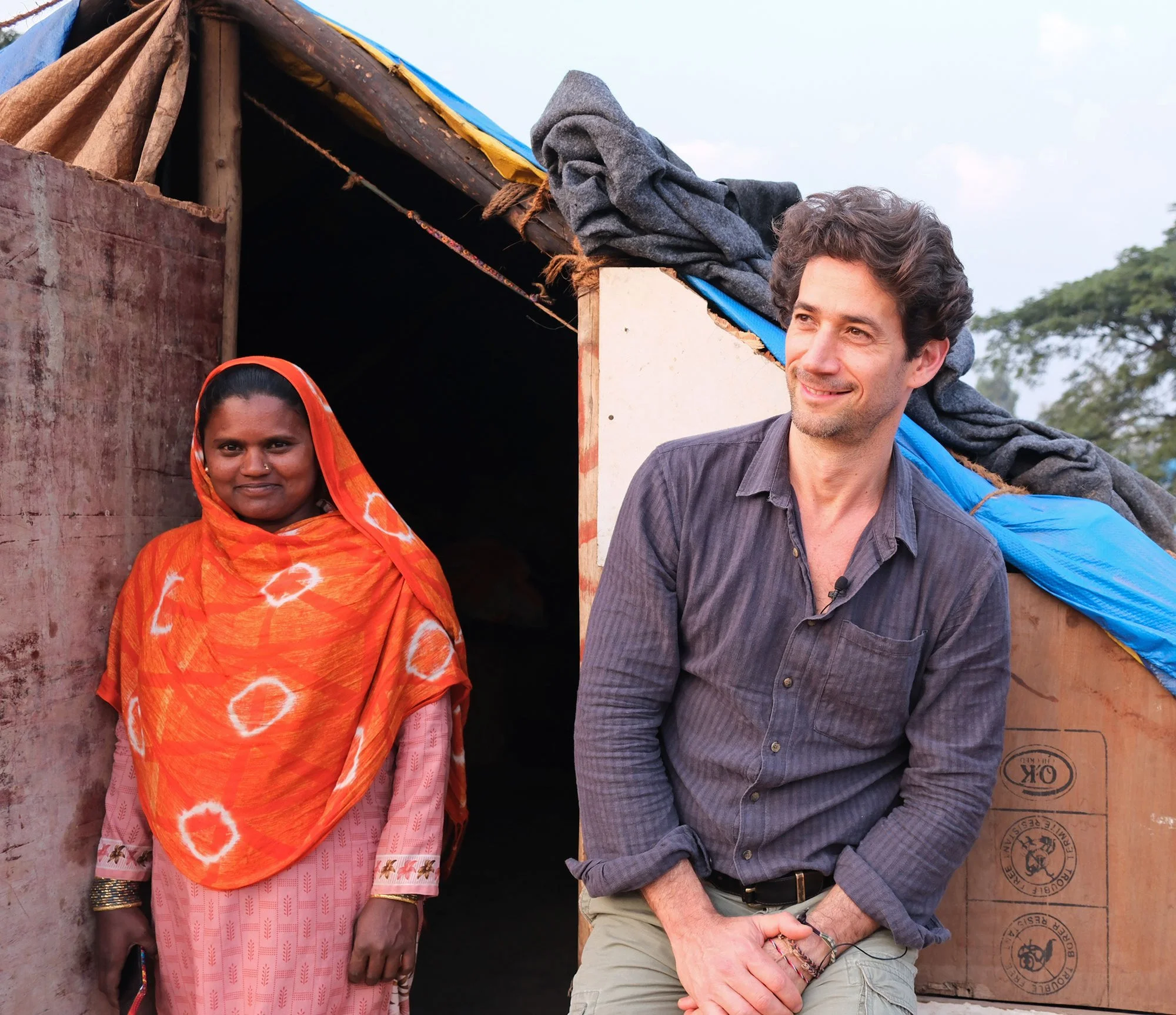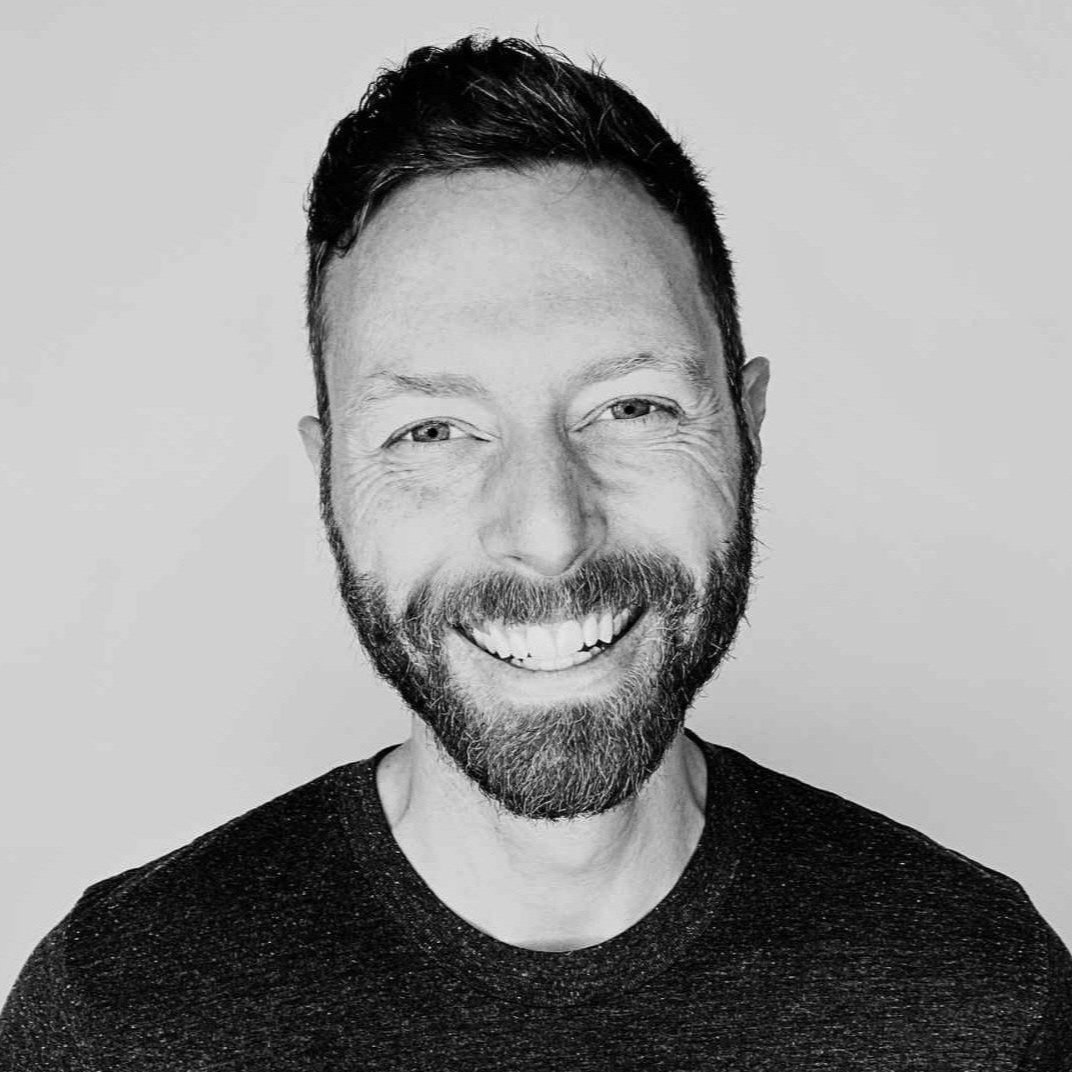Jeremy Meltzer On Connecting Purpose Led Businesses With Inspiring Community Directed Projects Globally
Jeremy Meltzer is Founder & CEO of i=Change, Australia's fastest-growing social impact tech platform that bridges worlds between businesses and NGOs.
In partnership with over 400 brands like Camilla, Ginger & Smart and Clarins, i=Change has raised almost $10 million and counting, $1 at a time, impacting the lives of up to 1.7 million people in Australia and globally. i=Change is a certified B-Corp, has won 3 x Australia Post ORIAs (2019, 2022, 2023), NORA’s Best All-Round Sustainability Partner (2023) and was voted one of 50 most innovative start-ups in Australia. i=Change has expanded into the legal sector, providing a unique solution for firms to bring to life their philanthropy, their commitment to people and planet - and engage their clients while doing so.
With a focus on empowering women & girls and mitigating the effects of climate change, i=Change is leading a purpose-driven business movement. Jeremy’s story highlights the unique opportunities available to every business to find their authentic path, meaningfully differentiate, drive client engagement, growth and retain talent. For as consumers - we now expect the businesses we support, to be helping build a better world.
Jeremy discusses the technology helping businesses to support NGO’s changing lives around the world, and why entrepreneurs are uniquely positioned to create innovative solutions for complex systemic issues.
Highlights from the interview (listen to the podcast for full details)
[Indio Myles] - To start off, could you please share a bit about your background and what led you to working in social enterprise?
[Jeremy Meltzer] - I think for all of us, when we look back that's the only point when life starts to make sense. We can see the breadcrumbs of our life and weave a thread between them. For me, it started when I was 21, I was living in Cuba and saw a lot of violence against women. For me, it was my first experience of understanding how prevalent and pervasive this issue was, and I remember feeling angry and powerless. I had this sense of how I could possibly make an impact and what could I possibly do, and that never left me.
I then went on to build an olive oil business with my father out of the Yarra Valley in Victoria, we had a bit of fun launching that as the first Australian olive oil in the U.S. The question became how could I use business as a tool to give back? How could I find a way in which our olive oil business could give back, because those early experiences had left me with the desire to empower women and girls. This was the genesis of the idea, I saw an opportunity to create a solution for our little olive oil business, and we had such a positive response from our customers I then realised we could build this into something that other businesses could also use and get value from?
As the founder and CEO of i=change, can you share more about the business, its unique giving model and how it’s generating a positive impact?
With the olive oil business, the problem I was looking to solve was how could we give back from every sale? The current model was consumers were being asked to add a donation to their purchase, and you still see this model in supermarkets. I remember thinking that's quite insulting, because as a consumer, we know that business is making money from us, so they should be giving back. Where is their skin in the game rather than just asking us as consumers to add a donation? It seems a bit childlike and even insulting. I thought how do we provide that opportunity to engage our customers in our purpose as a brand?
This was a long time before the business movement of social enterprise, purpose and B Corps had started, and there was no precedent for it at the time, and definitely not in Australia. There were a few businesses in the U.S. that had started to build purpose into their customer journey, so it started from that, me wanting to raise new funding for NGOs. Having met a lot of them around the world who are working to empower women and girls, one of my main takeaways was not only how complex their work is, but also, they needed more funding to create more impact.
In the developing world, a small amount of additional funding can change a lot of people's lives and make a difference, and so that became the crucible of the problem; how do we create a new funding stream for NGOs that's both new and sustainable, and how do we do so by leveraging the power of business?
As I mentioned, we trialled this on our olive oil site, and our customers were sharing the initiative across social media and engaging more with us. They were even buying more with us because they knew that if they bought our bottle of olive oil then money would go back to purpose, exactly a dollar from every bottle. That was the foundation of what's been almost a 10-year journey of building the technology, user experience and addressing the myriad of challenges around how to scale a company from an idea and create something out of nothing.
I guess you could say I've been stubborn, some would say persistent. We've got a great team now and we’ve built it into something we're incredibly proud of. This is not to say there aren't challenges, every day there are challenges and opportunities, but I think ultimately for those of us fortunate enough to know why we do what we do, to either work in a business that aligns with our values or have built one is a very privileged position to be in.
As someone who works with organisations and non-profits overseas, what advice would you give to entrepreneurs who want to navigate cultural complexities, systemic issues, and avoid falling victim to the saviour complex?
There are a few pieces to this answer. One is to be aware that as people from an Anglo-Saxon background and a developed country, there is a degree of privilege. That privilege is blind to itself, so I'd say one of the first steps is to become aware of your own privilege, how we are blind to it, and how doors often open to some people much quicker, faster, and more fully than to others. Then, check your hubris and that privilege at the door when attempting to work in a developing world setting.
For me, I'd spent a lot of my childhood growing up in the developing world, and I was very comfortable. My inclination was always to have a lot of respect and to feel a sense of awe (even reverence) for cultures I didn't understand, not to arrive with a preconceived idea that somehow what we've built in the West is better. In a lot of these countries, there's ancient cultures, beliefs, and traditions which need to be respected, and when I say need to be respected, I'd caveat this with as long as they don't hurt people. For example, the genital mutilation of a girl is not a cultural practice that should be respected, practices should be evaluated on a case-by-case situation.
In a nutshell, the NGOs we work with we vet and visit as much as possible. Also, they're staffed by locals, not Australians, Americans, or Europeans. They’re staffed by locals who are of that culture and community.
Effectively, what these NGOs are doing is unlock local solutions driven by locals who speak the language and understand intrinsically what that community needs. It requires treading lightly, asking questions, and not assuming anything about a particular place.
Every land and community are steeped in its own cosmology and understanding of the order of things. We would do well to listen, learn, and understand our own conscious and unconscious biases when we move through these places. Even the fact that we can go to these places is a product of privilege.
It's been a journey working in these settings and a privilege to be able to spend time with these communities and local leaders. They're often extraordinary men and women who are deeply passionate about developing skills and unlocking the talents and smarts of their own communities. That gives a framework of how we think about working in these parts of the world.
What is needed to propel and mainstream the Australian business for good movement and bring traditional businesses, governments, and not for profits together on board?
Another good question, and not a small one. It’s heading in the right direction I would say. When I started i=change, we were very much the lonely people in the room. I would go to these retail conferences, and no one wanted to talk to me. They would ask each other, “who is this strange guy who's talking about giving back to charities, why would we do that?” This was unless they had a lot of money to give away and so they would write a check. Fast forward now to today, what seems to be the fastest growing movement in business is sustainability, impact, ESG, and giving to people and planet. Of course there's several terms for this, but ultimately it points to a business's social license to operate.
I also believe for a business to remain relevant, it's increasingly critical that they have a very clear purpose beyond product. That's why it is a potent time, the bridging of worlds between what in our case is mostly retailers by making it simple for them to give back along their customer journey.
In doing so, they have a much larger conversation beyond their product, and talk about their purpose and impact. They can feature on impact days like International Women's Day or Earth Day, which we're currently running a campaign for at i=change. All these days become opportunities for businesses to move beyond the typical confines of what they do. It enables them to have a much bigger conversation with their stakeholders and to move that purchase decision or client decision from head to heart.
We’re stuck in this paradigm as we have been since the industrial revolution, around what creates value. We've been selling products and services for a very long time based on very little else but their value and the relationships we can foster around that journey with the client. When discussing what we want now, we can just talk about Australia, but we can also speak globally because ultimately humans are humans everywhere, and what motivates us is very similar.
What people want is to be engaged in a conversation that is both head and heart. You must have a business with a great product or service that people want, but one that also stands for a broader purpose.
As more people brands do this, we're leading the space in Australia of making it simple for businesses to move their engagement from head to heart, so they can talk to their customers and clients about what they stand for, who they're giving to, and how they’re positively impacting people and planet. The social enterprise movement is still in its early days. We're moving now to a point where I think even that term doesn't do it justice anymore, it makes it feel a bit homespun and small.
We just signed our first law firm who are giving back from their invoices, and so large businesses are now understanding that they have a responsibility which they must address transparently and with commitment. I'd say the tailwinds are with the community, and I firmly believe that what will emerge even in the next three years is a new normal. To remain relevant, a business must be giving back and have a clear commitment to people and planet. It will be an exciting moment when we reach that tipping point.
What advice would you give to a founder seeking to create a positive impact through starting their first business?
Why this is such a critical time for social enterprise is because we're all increasingly aware of how fragile these times are.
There's never been a better time to start a business that gives back, and I think if you want to have a head start, you must have a clear purpose. Make your purpose simple, whether you’re a retailer, e-commerce journey or professional service.
Whatever a business owner chooses to do, it's important that it's authentic to your own journey, what you're passionate about or the impact that you want to have, whether it’s social or environmental.
Building a business is hard, so you might as well know why you're doing it. Money is important, to be able to run a business you must have cashflow. But if you really want to thrive as a business, you must have a purpose beyond product and profit.
The other item worth mentioning is the extent to which it engages teams and staff. We have a lot of retailers saying, “I had no idea how excited our teams would be when coming into work every day,” because we provide a life counter so each brand can see how much they're raising in real time. We didn't know, how valuable that would be internally for the businesses to be able to show and engage their staff to choose if they want to change what NGO project they support.
There are a lot of benefits, and one of the challenges is that businesses still see the word donation as a cost rather than what we would call an impact marketing investment. Again, that's a work in progress, and we must move past that mindset. To answer your question:
Find that thing in the world that wakes you up at night and makes you seethe, whether it’s with anger, frustration, or excitement for the change you think you can make. Follow it down the rabbit hole, remain courageous and commit. It's never easy but doing anything well never was.
What inspiring projects or initiatives have you come across creating a positive change?
There are several inspiring social enterprises in Australia, but to be honest, I'm constantly in awe of the impact leaders we help support. These NGO leaders and people tend to be women, and they are not there for the money in this sector, they're there because they're deeply passionate about the issue they're working on, whether it be Australian families experiencing food stress, mental health issues, or preventing violence against women.
Violence against women just doesn't seem to be getting better, so leaders are providing nights of shelter for women and children escaping domestic violence situations. Across the developing world, we’re working with extraordinary teams from Indonesia to Bangladesh, India, Rwanda and Nepal. They say two luckiest days in the world are first the day you were born, and second, the day you find out why. These people we work with know their why. It’s always an honour, and it's energising and exciting to be around them.
To finish off, what books or resources would you recommend to our listeners?
I'm reading one book now titled Philosophy and Life by A. C. Grayling which is very interesting. As people in business, we tend to read business books maybe more than we should, and I only say that because there's a lot we can be inspired by, from philosophy to spiritual texts. I'm reading one now about the degrowth movement, and it’s fascinating to understand the history of capitalism and the system we've created. Of course, we all know we're coming up against some hard limits to growth now. In the little time I must read, I'm probably guilty as a lot of us are of jumping from one book to the next without finishing any or at least any one quickly!
Initiatives, Resources and people mentioned on the podcast
Shop For Change (Impact Event For International Women’s Day)
Recommended books
Philosophy and Life: Exploring the Great Questions of How to Live by A. C. Grayling










